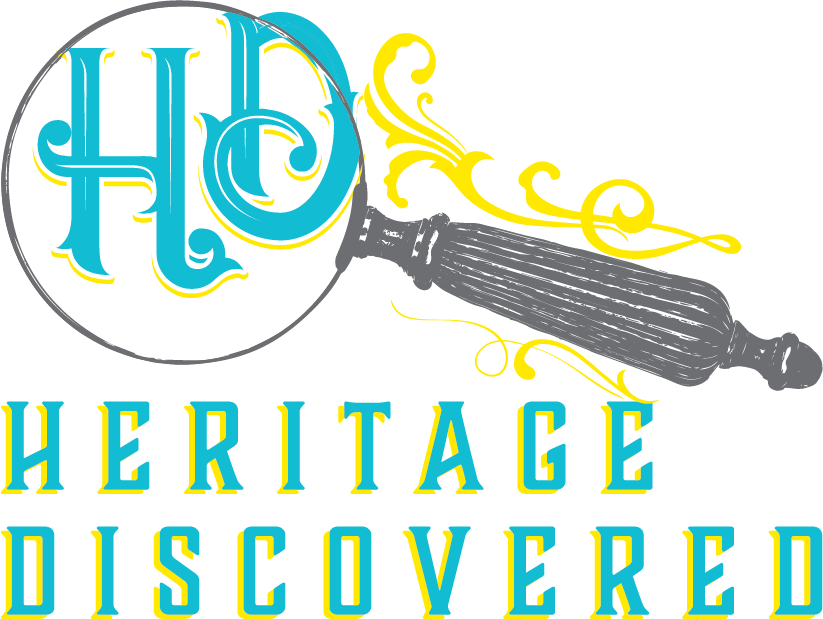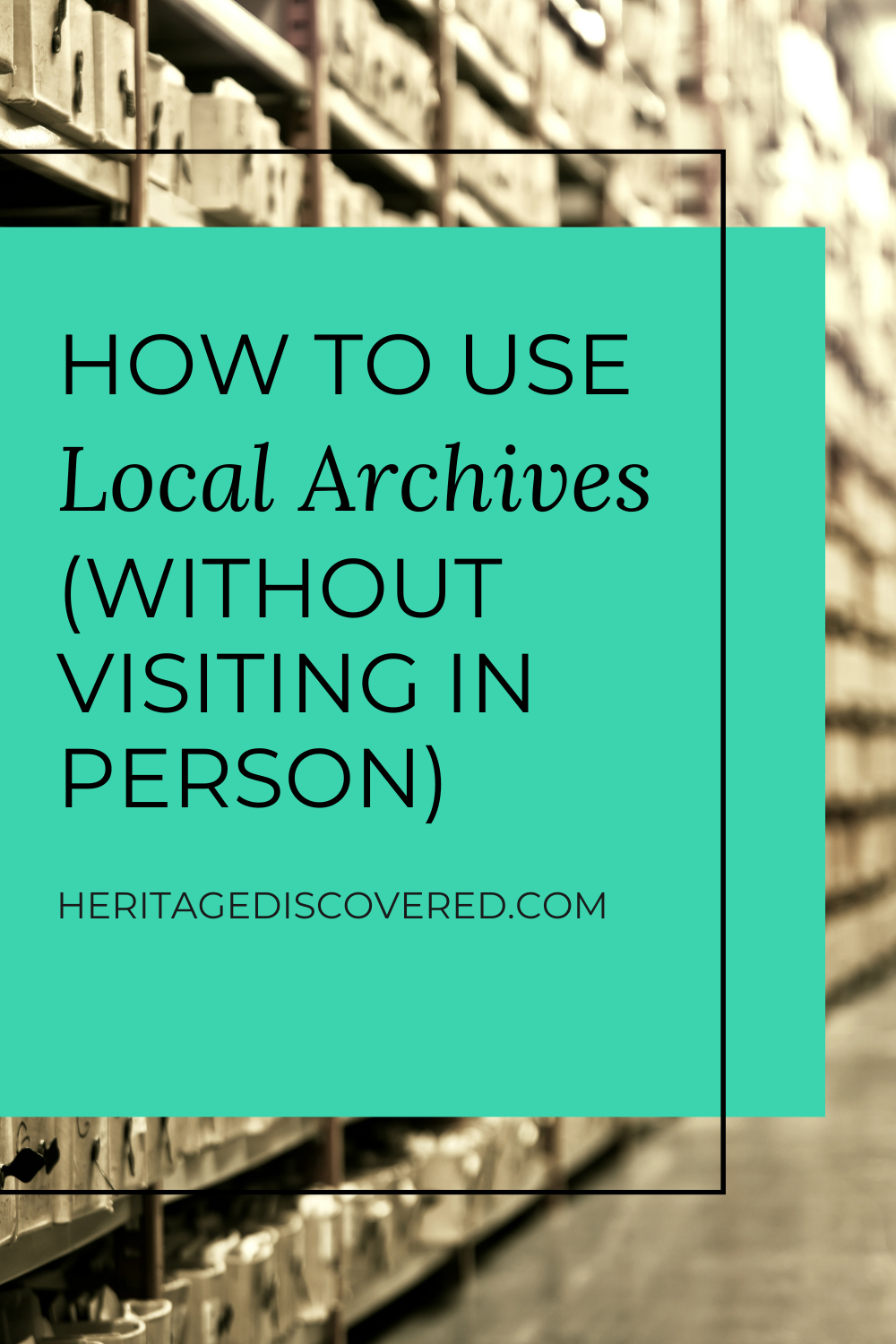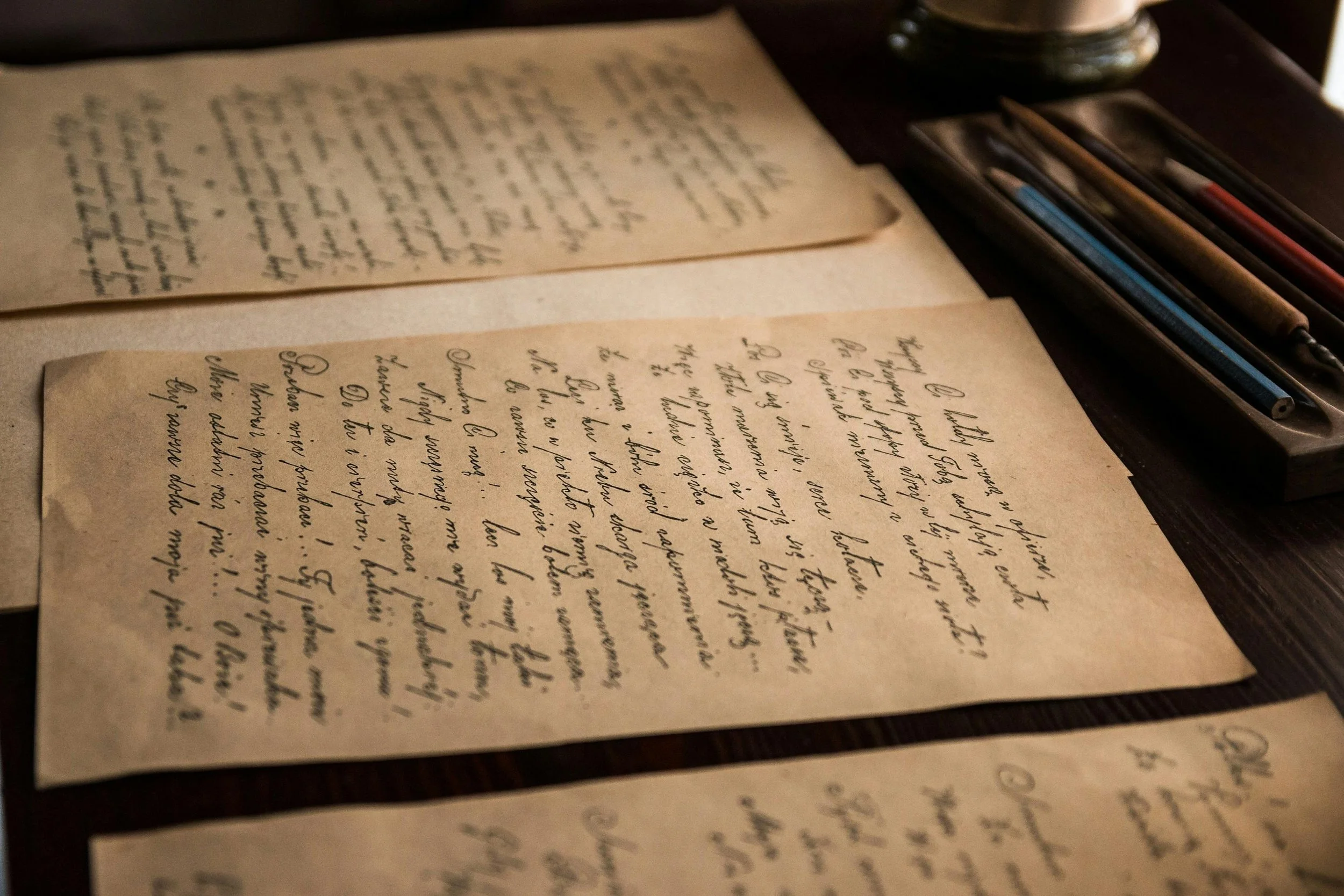How to Use Local Archives (without Visiting in Person)
*This post may have affiliate links, which means I may receive commissions if you choose to purchase through links I provide (at no extra cost to you). All opinions remain my own.
There’s a myth in family history research that to access local archives or historical society records, you have to hop in your car (or on a plane), knock on dusty doors, and dig through boxes in person. While that sounds like a dream research trip to me, I know it’s just not possible for most of us, especially when the archives you need are three states or even a country away.
The good news is that you can absolutely learn how to use local archives from a distance. In fact, some of my favorite discoveries about my French Canadian ancestors and early Vermonters came from historical societies I never stepped foot inside. With the right strategies (and a little persistence), these community treasure troves can unlock new clues in your research — even from your couch.
Before we go any further, hi! I’m Jessica, a professional genealogist who’s uncovered some of my best clues without ever setting foot in the archives that held them. I specialize in New England, French Canadian, and Hawaiian research, and I’m here to help you turn local historical societies into one of your most powerful research tools, no matter where you live.
Let’s walk through how to use these underappreciated gems, what to expect, and how to request the records hiding in those back rooms.
Why Historical Societies Are a Hidden Gem for Genealogists
Historical societies often fly under the radar, but they’re one of my favorite secret weapons. Why? Because they tend to collect the stuff no one else does.
Think family Bibles, church bulletins, community cookbooks, unpublished genealogies, school photos, maps, diaries, business ledgers, funeral home books, and my personal favorite, local newspaper clippings (hello, obituaries and juicy town gossip). They’re also staffed by people who care deeply about their community’s history.
Whether you're tracing a long line of Quebec farmers or trying to pinpoint a Massachusetts town where your ancestor might’ve married, local historical societies can provide the hyper-local context that big online databases just can’t.
Photo by jarmoluk via PixaBay
What Kind of Records You’ll Find in Historical Society Archives
Let’s get specific, because knowing what to ask for makes all the difference.
Every historical or genealogy society is a little different, but you might find:
Vertical file folders by surname or topic, often including a hodgepodge of clippings, letters, and handwritten notes.
Photograph collections of individuals, homes, or community events.
Local histories and town anniversary booklets.
Church, cemetery, and funeral home records.
School records, yearbooks, or alumni directories.
Family genealogies or “descendant reports” donated by earlier researchers.
Land deeds, tax rolls, and business directories.
Manuscripts and personal papers like diaries, letters, or account books.
These materials are often not digitized and won’t appear in a search on Ancestry.com or FamilySearch. You might find a collection guide on the society’s website, but many materials live in filing cabinets and uncatalogued boxes. This is why learning how to use local archives thoughtfully and with realistic expectations is so important.
How to Search Historical Societies from a Distance
Here’s how I approach remote research with historical societies:
Start with their website. Look for tabs like “collections,” “archives,” “library,” or “genealogy resources.” Some have PDFs listing family files or cemetery indexes. Others might have online exhibits or searchable databases. Bookmark what you find.
Google creatively. Try searches like “[town name] historical society archives” or “[county name] genealogy collection.” Include terms like “surname files,” “obituaries,” or “cemetery transcriptions.”
Check WorldCat and ArchiveGrid. These tools let you search library and archive holdings around the world. They list manuscripts and small collections housed at local societies or libraries.
Search neighboring towns. If your ancestor lived near a town or county border, the nearest historical society might not match the place name exactly. Cast a slightly wider net.
Use social media. Many societies have a Facebook page and share highlights of their collections or offer Q&A sessions. A quick scroll through posts can tell you a lot.
If you're not finding much online, don’t give up! Many smaller societies just don’t have the staff or budget to digitize everything, but the goodies may still be waiting for you offline.
Tips for Requesting Lookups or Copies
This part matters. Since many of these organizations are small (often run by volunteers), your request needs to be kind, clear, and as specific as possible.
Here’s what to include:
The full name of the person you're researching (with variants)
Their birth and death dates (even estimates help)
The location(s) and timeframe you’re focusing on
What records or clues you’re hoping to find (e.g., obituary, school record, photo, deed)
Any sources you’ve already checked so they don’t duplicate efforts
A polite note of appreciation, because someone is likely doing this in their free time
I also recommend offering a donation with your request or paying the lookup/copy fee if posted. $10–$25 goes a long way and shows you value their time and effort.
Pro Tip: Keep a simple email template saved on your computer and tweak it for each request. Saves so much time.
Photo by Bo Ponomari on Pexels
Understanding Archive Access Policies and Limitations
Now, I wish every local archive would let us order scans of everything for free. But the reality is, access can vary wildly.
Some common policies you might run into:
Only open to members or by appointment
Limited hours or closed seasonally
No digitization services offered
Copyright restrictions on reproduction
Copy fees, usage fees, or research fees
If you're told “we don’t do that” or “we can’t help with that request,” try not to get discouraged. It’s not personal; often it’s about staffing, resources, or preservation concerns.
What you can do is pivot. Ask if there’s a volunteer who could check a file for you. Or if they can recommend a local researcher (or genealogist — hi!) who’s familiar with the collection.
When a Local Researcher Can Be Your Best Ally
Sometimes, outsourcing makes sense. If your ancestor’s trail runs deep in one place or you’re stuck waiting months for replies, hiring someone local can speed things up and unlock access you wouldn’t have otherwise.
Here’s what a local researcher can do:
Visit the society in person to search vertical files
Navigate finding aids or card catalogs not available online
Scan or photograph documents or other resources
Recognize patterns or resources unique to that region
If you’re at that point in your research, I offer 5-hour and 10-hour research packages, depending on how deep you want to go. Or, if you just want guidance on how to structure your outreach or what to ask for, a one-hour Pick a Genealogist’s Brain session can be the perfect first step.
And if you're not sure what you need yet, we can start with a free 20-minute consultation.
Using Historical Society Finds to Enrich Your Family Story
The best part of learning how to use local archives? You end up with stories, not just names and dates.
Funeral home records might mention a relative that busts your brick wall. A church newsletter could list a baptism sponsor who turns out to be a cousin. A photo of a baseball team might include your great-grandfather in his twenties.
These details bring color and life to your family tree. They connect your ancestors to real places, real communities, and real events. And they make your research feel a little less like data gathering and a lot more like storytelling.
So if you're feeling stuck, or like you're circling the same few census records, consider turning your attention to the archives and historical societies sitting quietly behind the scenes.
They might just be holding the answer you’ve been chasing.
Curious if there’s a historical society you should reach out to in your ancestor’s hometown? Or feeling stuck on how to phrase your email request? Reach out and let me know! I’m happy to help brainstorm.
And if you'd like support digging into these collections, take a look at my research packages or schedule that free consult. You don’t have to do this alone.
Your next big clue might be waiting in a folder labeled “Miscellaneous.”



